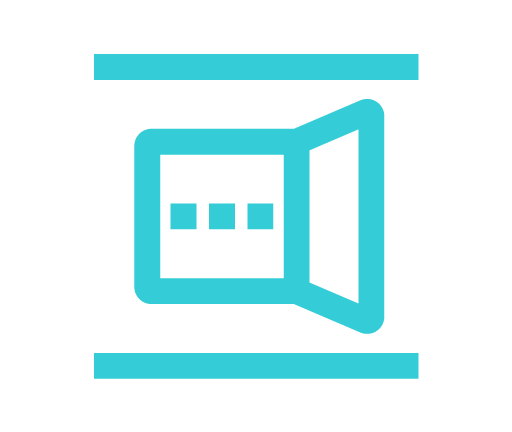Soracom Peek Available for Public Beta

Press release: New Soracom Services Accelerate IoT Data Flow, Improve Security, and Reduce Cost
In the IoT industry, data is king. Companies go to great lengths to build a robust, secure architecture for their deployed devices and cloud infrastructure. Even so, it is inevitable that situations can arise where a device does not operate within spec. Often the most helpful thing in these situations would be to inspect the raw data sent from or to the device. But due to machine, cloud, or environment constraints, our clients may not be able to perform data capture in both directions. SORACOM Peek is a new service created to address this need by allowing our customers to easily perform packet capture.
What is SORACOM Peek?
SORACOM Peek is an on-demand packet capture service that lets you inspect raw transmitted data. Currently, the service works only with VPG, although we are presently developing device support for customers who do not use VPG. The word “Peek” means “glimpse” and is an excellent description of the service. Customers who use Peek want to get a glimpse of the traffic for a short burst in time.
What’s the difference between SORACOM Junction and SORACOM Peek
For those of you who know more about SORACOM’s services, you may be familiar with SORACOM Junction – a transparent traffic processing service. Junction has a mirroring feature that allows similar functionality to Peek but with the following differences:
Junction mirroring
- Junction Mirroring copies and forwards packets to an arbitrary IP address for processing. Therefore, to capture packets, you must run tcpdump or other methods to obtain the packets yourself.
- In order to use Junction Mirroring, the copied traffic must be stored in your own instance or device. Additionally, to receive the packets You need to add the proper configuration to the network ACLs and security groups.
- Traffic passed to the Junction Mirroring Instances can see the packets being sent and received from your device and require header decapsulate in order to get rid of the GRE header.
- Junction data sent and received from the customer’s device passing through the VPG by Mirroring has no limit to the number of packets that can be copied and once set is valid until the setting is deactivated.
- Junction Mirroring only captures packets on SIMs that use VPG. You must sort out the individual SIM packets yourself.
Peek
- Peek allows Solacom to do the packet capture for you.
- Peek to VPG can only be performed on Type-E or Type-F VPG.
- Peek can manage packet capture via the console and APIs. For added convenience, all files generated by Peek packet capture are downloadable via the console.
- The packets captured by Peek are not encapsulated by GRE or any other means. Packet data saves to a capture file that does not require to be decapsulated or additionally processed.
- To use Peek in your own closed infrastructure within Soracom, you will need to provide an instance or appliance for the capture.
- Peek packet capture windows can be set from 30 seconds to a maximum of 24 hours.
- Only one Peek to a VPG can be executed at a time.
You can use Peek (currently under development) for your SIM to get the most out of a single SIM You can perform a packet capture. Each has its own advantages and disadvantages, so we hope you can use them to your advantage depending on your situation and needs.
How to use SORACOM Peek
To use Peek, go to the VPG details page and click on the Packet Capture tab. Click to initiate a packet capture or to view a list of previously recorded packet capture sessions.
When creating a new packet capture session, the status will be set to REQUESTED. Soracom infrastructure then processes all requests sequentially. The capture session can start at any point in time at which the time status changes to CAPTURING. After the specified capture period has passed, the session ends, and sessions status will show DONE. After clicking the reload button in the upper right corner, the downloadable files become available. If the session did not record successfully for any reason, the status would show as FAILED, and clicking the icon indicates the cause of the problem. Status information is also available in the SIM details dialog.
By clicking GET LINK in the list of finished packet capture sessions, the button is replaced with DOWNLOAD. Clicking that button will begin the download process.
Pricing and technical documentation
Pricing for Peek is determined by the volume of captured data and data export. Please keep in mind Peek also requires VPG Type-E or Type-F as a prerequisite.
- Peek Fee
- 5 USD / per day (one day is UTC)
- Charged per VPG enabled and per day of use.
- Captured Data Capacity Fee
- Up to 5GB per day will be free of charge.
- 1 USD per 1GB of captured data per day (excluding tax) if the amount of captured data exceeds 5GB per day per VPG.
- Data Export Fee
- Up to 5GB per month will be free of charge regardless of the number of days of use per month.
- 1 USD per 1 GB (excluding tax) if the amount of data exported exceeds 5 GB in a month.
To learn more about how to use it, please visit the Soracom Peek page in the developer docs. https://developers.soracom.io/en/docs/peek/
Happy packet capturing!
- Dogfooding is important. After actually using the binary parser and Funk, I felt the need for something like Orbit.
- Be curious. At first, I thought WebAssembly had nothing to do with me, but once I understood the specification, it was clear there was no better option.
- Building something new inside an organization requires a team. The members of Soracom are too kind!
Please give Orbit a try and give us your thoughts and feedback!



